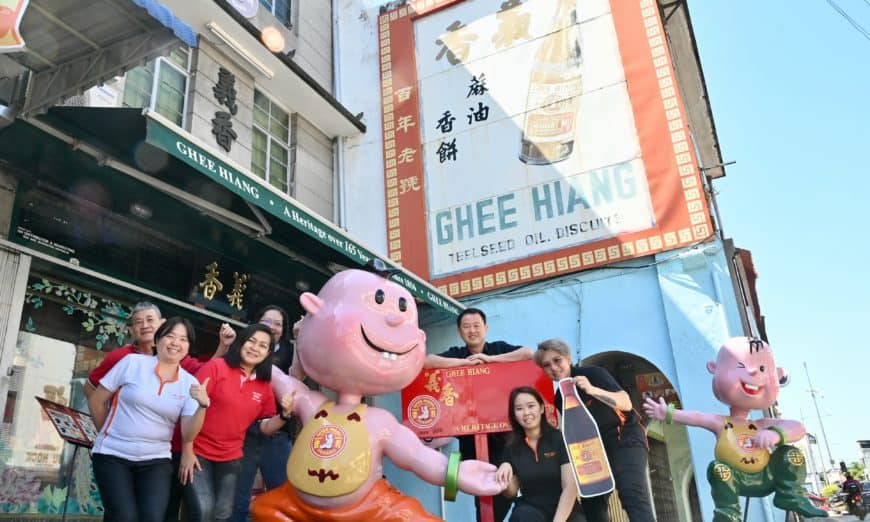FOR umpteen years, Ghee Hiang has always been synonymous with tau sar pneah (fluffy pastry with green bean paste filling) and sesame oil.
Foreign and local tourists flock to the shop to buy them and a variety of other pastries, like beh teh saw (flaky pastry with sesame seed molasses), phong pneah (light fluffy pastry with white sugar) and hneoh pneah (flaky pastry with brown sugar).
Now, for the first time in its 167-year history, the famous Penang brand will launch another version of tau sar pneah, called tau sar pneah kurma (Flaky Mung Bean Pastry With Dates) soon.
What a timely product for Ghee Hiang to introduce as Muslims are due to begin fasting in the third week of next month before they celebrate Hari Raya Puasa sometime between April 21 and 23. As dates are usually eaten after a day of fasting, tau sar pneah kurma is expected to be a hit with them.
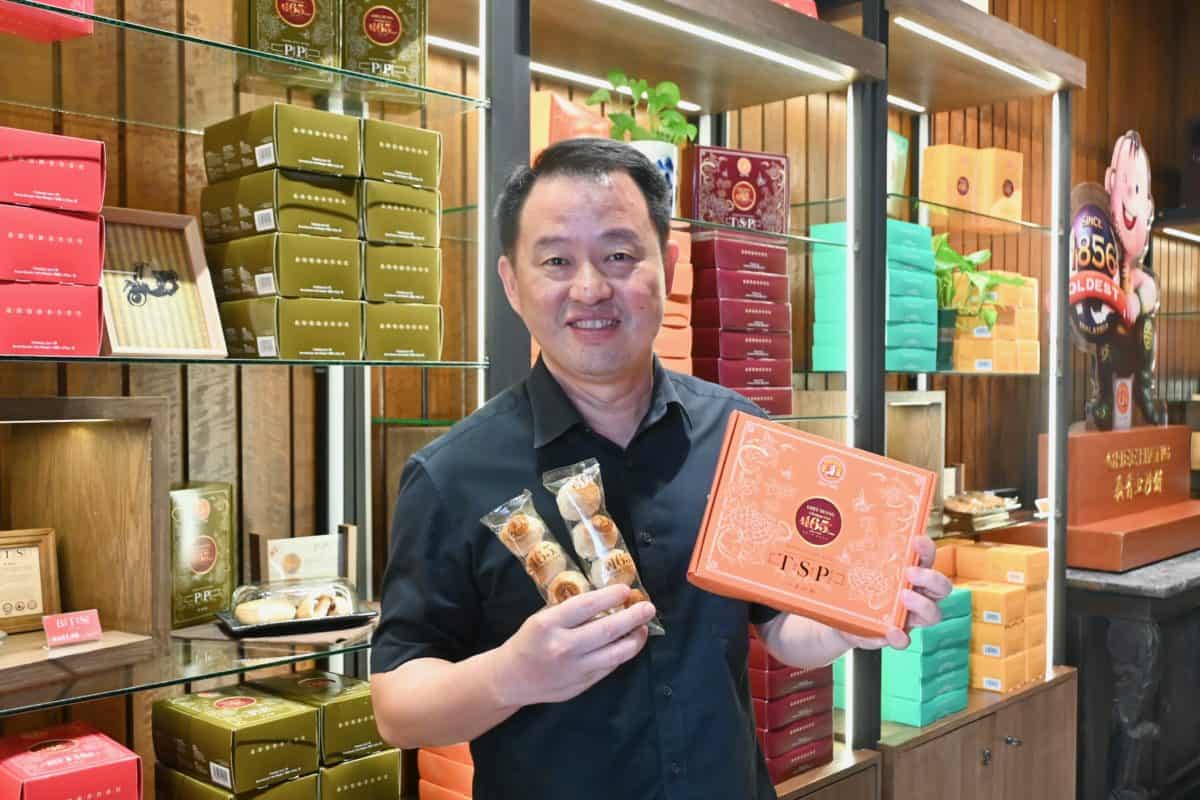
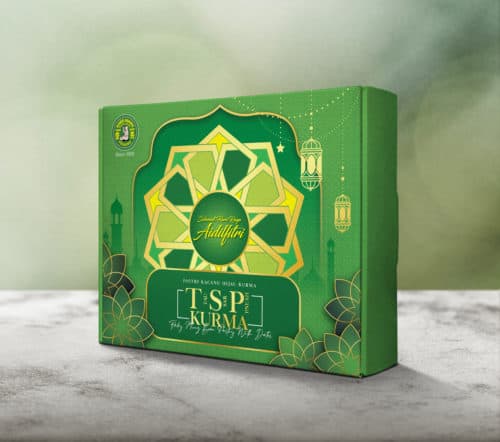
Ghee Hiang executive director Ch’ng Huck Theng said he believes that Ghee Hiang would be the first biscuit manufacturer in the country to introduce tau sar pneah kurma or TSP Kurma for Raya.
“We feel that as part of Penangites and one of the oldest brands, we should make an effort to create new history.
“Some things have to evolve and some things have to stay.
“While we have to evolve to survive, we also need to preserve and promote what we are known for. We must not change totally everything; there must be something that our forefathers had done right that gave us an opportunity to grow further.
“TSP Kurma will thus be a blend of two traditions and a pride of two different cultures in terms of food. All our products are halal.
“TSP Kurma is something new, and not in the market. I tell my Chinese and Malay friends that if they want to buy a gift, why not TSP Kurma? It does not cost much; it is moreover supporting culture, is relevant and has a story to tell,” Huck Theng told Buletin Mutiara in a recent interview at the Ghee Hiang shop on Beach Street.
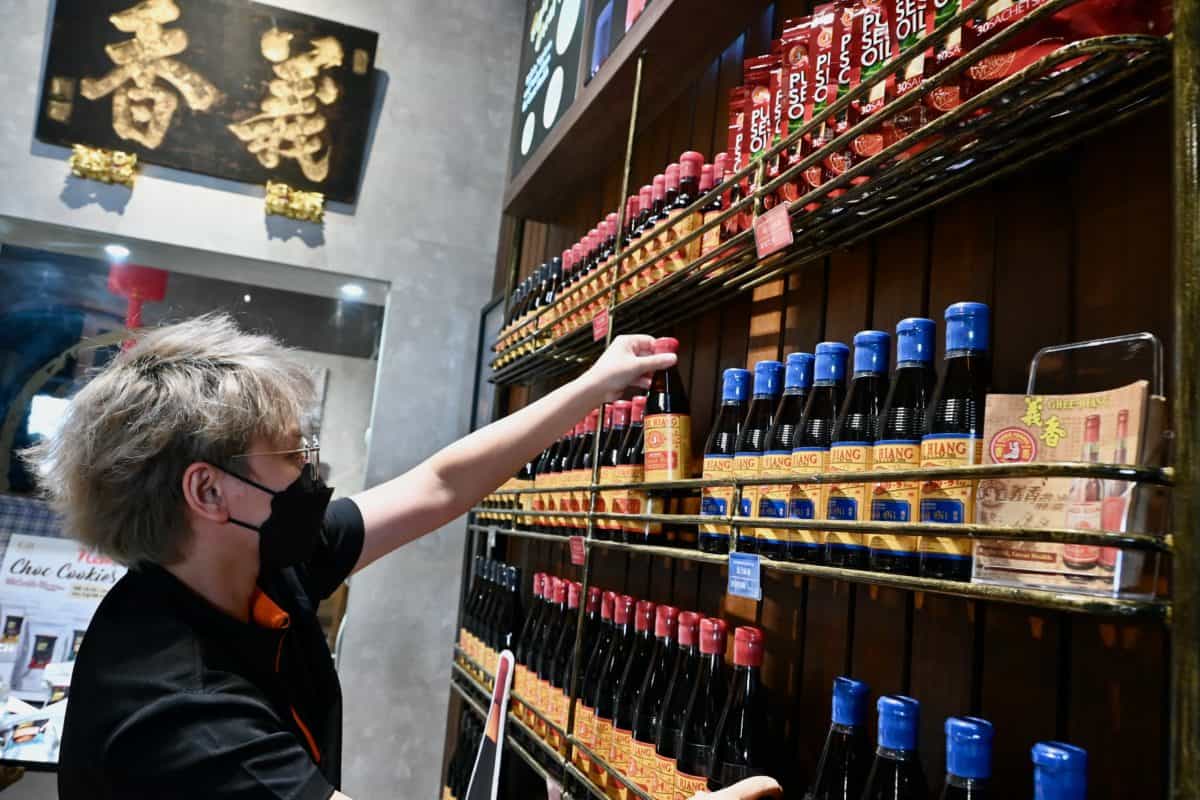
He said for the past two years, they have been building their factory in Batu Kawan which should be up and running by year-end.
“We have already introduced our new cookies, namely dark choc, white choc and chilly choc.
“Some have compared our cookies to the Famous Amos cookies, so we know we are there,” he added.
Ghee Hiang also made mooncakes during the festive season but the practice stopped in the 1980s. But under new management, it brought back a few old coffee brands as well as mooncakes and almond cakes with very nice gift box packaging.
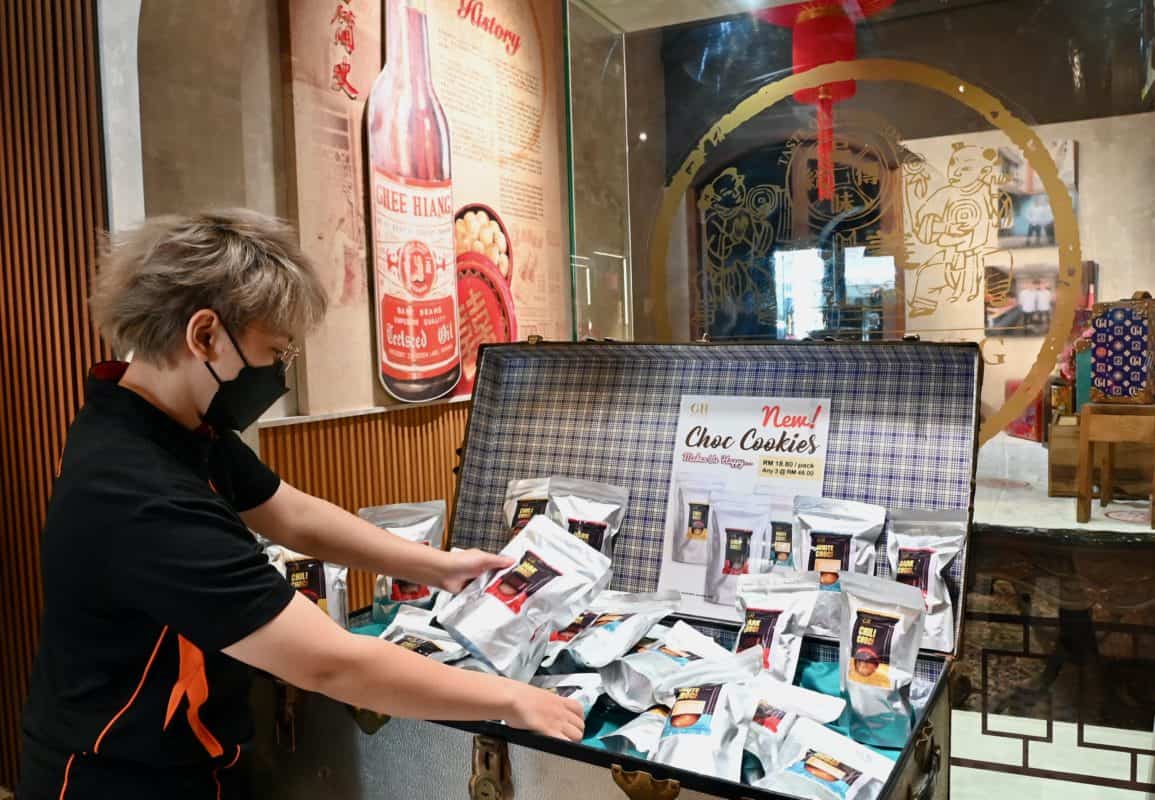
Currently, it has two other shops on Penang island – its main shop on Macalister Road where the biscuits and pastries are made, and a retail outlet on Burmah Road. On top of that, it has a factory producing sesame oil in Jelutong which is exported to several countries such as Indonesia, Singapore, Thailand, Brunei, Australia, Hong Kong and the United Kingdom.
Earlier this month, Ghee Hiang was one of the firms that the state government recognised for being a century-old or more enterprise at an award-giving ceremony for durable establishments.
As a matter of fact, several state leaders often buy Ghee Hiang products as gifts for their guests, including dignitaries, to Penang.
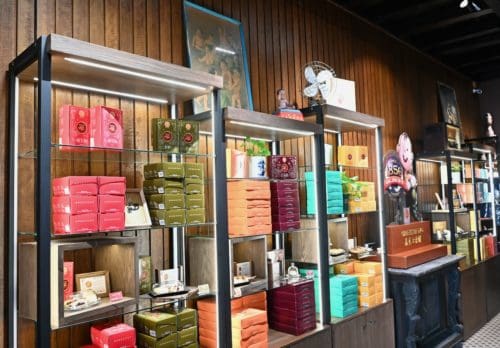
The company has gone through many ups and downs since a Chinese migrant, Teng Tou Ku, founded it in 1856.
From what Huck Teng learnt, Teng was one of the many coolies from Fujian province, China, who came to then Malaya during a mass migration of coolies, traders and merchants to seek their fortunes.
But after trying out several trades and not making much headway, Teng decided to do what he knew best – making Chinese pastries.
He set up a roadside stall at Weld Quay, selling a fried pastry or pneah – either plain or with white or brown sugar filling at the waterfront. He named the stall Ghee Hiang after the pastry shop he used to work for in Fujian province.
Years later as business continued to blossom, the Teng family established a permanent shop at the waterfront.
However, in 1926, the business was sold to Ch’ng Pak Loy, Ooi Say Kow and a friend of theirs because it was said that Teng Chiao Ho, the only son of the third generation, was not interested in the biscuit family business. Instead, he was rather keen on photography and arts.
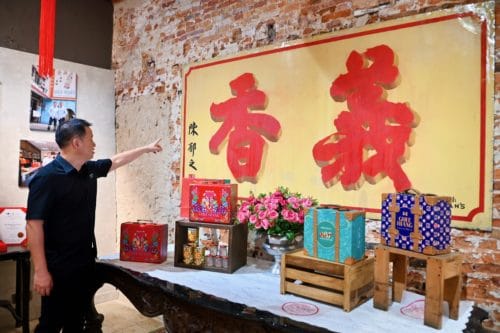
So, the business is now mainly managed by Datuk Ooi Sian Hian as Ghee Hiang executive chairman and Huck Theng as the executive director. Pak Loy was Huck Theng’s great grandfather while Say Kow was Sian Hian’s grandfather.
Both Sian Hian and Huck Theng have weathered the storm, including a management crisis among the shareholders before and the recent Covid-19 pandemic, and are now steering Ghee Hiang to greater heights.
In January this year, the Ghee Hiang shop on Beach Street held a brand relaunching ceremony after some major renovation to change its image into a contemporary heritage style, as if trying to push back the times.
“As the leading oldest brand in Penang, we like to lead by example. So, if Ghee Hiang can change and remain relevant in terms of its history and culture, people may say why can’t they?
“We are not trying to show off. We’re trying to tell everyone, come let’s make Penang unique by preserving our heritage and our culture. That is what the government is doing now and moving the state forward.
“That was why we renovated this shop into an old late 19th century and early 20th century-style shop, reminiscent of a Straits Settlement shop during the British colonial era. It features a large window on each side of the entrance to showcase an array of merchandise and items behind the store’s windows.
“It is also to show that our grandfather or great grandfather or someone’s grandfather came, worked on the street in Weld Quay, made it, and then opened a shop. A Chinese having a shop at that time was a big deal.
“Of course when you come in, the renovated shop on Beach Street still retains the old charm but it is still good for Instagram,” explained Huck Theng with a smile.
Apart from being a noted artist, he is the president of the Penang Art Society, which is the oldest art society in Malaysia. In addition, he also runs CHT Network and Marketsource Sdn Bhd.
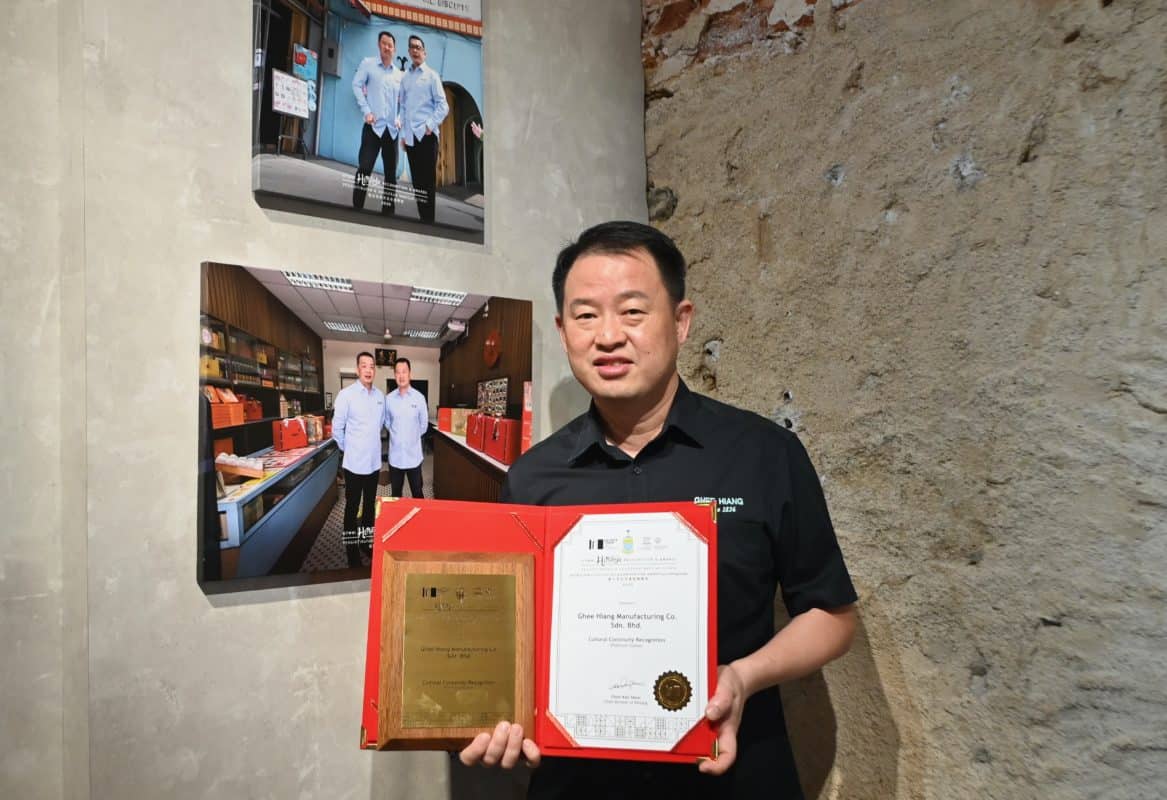
Huck Theng said Ghee Hiang was happy that the state government has acknowledged those establishments with a century or more old history.
“If the government does not take the initiative to do something with the heritage, the culture, and the arts scene, no one is going to bother.
“So, it is a blessing that the government has finally stepped up to acknowledge, preserve and promote all these dying trademarks. Some are people, some are brands. This is a good thing that the government has done.
“We feel that it is also part of our responsibility to make Penang a better place by preserving the culture, preserving the heritage and engaging with the new generation because they will be the next custodian.
“We’ve to understand that without the history, the culture and the heritage, then it will be a state without a soul.
“You can build a nice and big building with good infrastructure, but you just have a nice body; you don’t have a soul. The heritage, the arts and the culture are the soul.
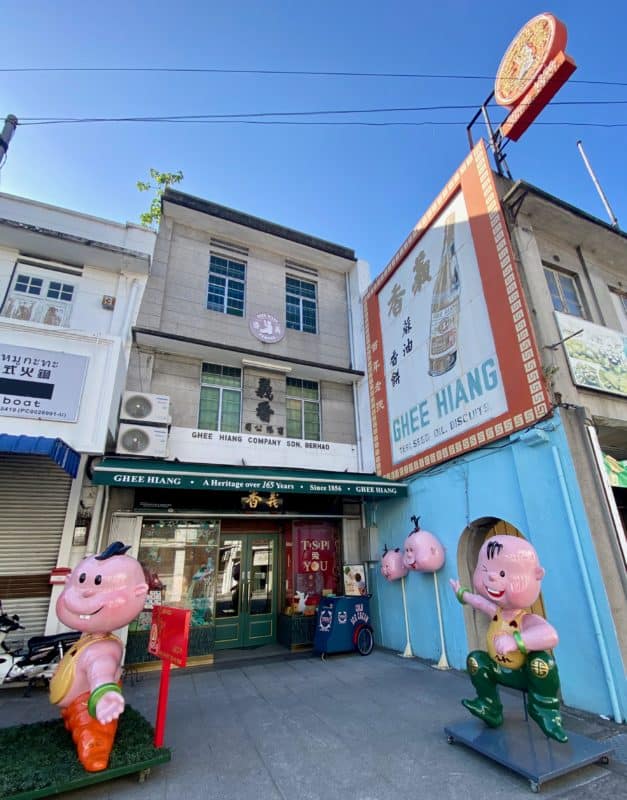
“Even more important today than before, as tourism goes, people come for a unique experience.
“Unique experience does not mean people come for Adidas, Hermes or Louis Vuitton. People come to see Penang and what it has to offer, past, present and future. So, the past is what makes the present and will shape the future.
“Preserving the uniqueness of the past is very important. Tourism is all about the unique experience.”
Story by K.H. Ong
Pix by Alissala Thian

